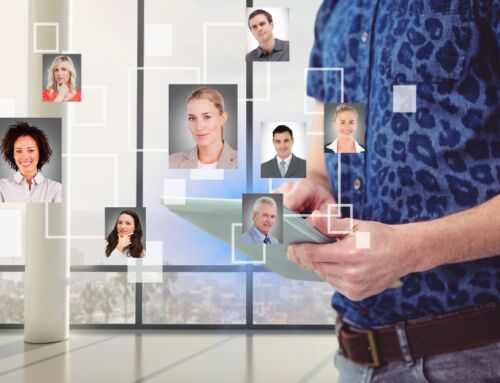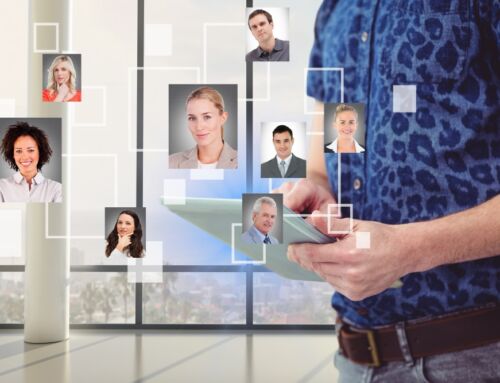The days of HR departments having to juggle repetitive and time-consuming tasks are coming to an end as generative AI helps streamline outdated HR processes.
As HR software develops to better manage complex recruitment processes and employee management, overall efficiency within HR departments is improving. This allows HR employees to focus their efforts on the more human element of the role.
Nowadays, 81% of HR experts are open to integrating AI into their workplace functions. The HR landscape as we’ve known it is changing at a rapid rate, offering more efficient services that transform how a business manages its team.
In this article, we discuss exactly how generative AI can help HR departments. We’ll also delve into four use cases that show just how much impact it can have on the workplace.
Image by airfocus on Unsplash
The Benefits of Generative AI in HR
Many HR employees are getting used to using an AI HR assistant as part of their daily duties, transforming the way a department is run in comparison to more outdated HR techniques. As software options widen and new tools offer time-saving features, there are a variety of HR benefits associated with AI.
Data-driven decisions: The ability to analyse large quantities of data in an instant means HR departments can make informed decisions without having to undergo lengthy projects. Whether that be compiling reports from employee satisfaction surveys or spotting trends in appraisal forms, AI is able to analyse data in a way that would be incredibly time-consuming for humans.
Time efficiency: AI takes away the need for HR employees to spend large chunks of their time on repetitive tasks. With AI being able to manage tasks like reviewing CVs, approving holiday requests, and processing onboarding documents, the HR department can focus its time and efforts on tasks that require human judgement.
Improved accuracy: There are various causes of human error, from typos and input mistakes to subconscious bias from different members of the team, that can skew the results of data. By handling daily duties through AI automation, the accuracy of the outcome is bound to increase.
4 Use Cases for Automating HR Tasks
As AI continues to transform traditional HR duties, we’ve pulled together four of the most notable changes that are having a significant impact on the industry.
Tailored employee training
Training a workforce consumes a large quantity of time, money, and resources for a business. From onboarding new employees to running refresher courses and training staff on new processes, the planning and/or execution of training sessions can take up a considerable chunk of the HR department’s time.
Generative AI is being integrated into business processes to automate training programs and tailor them to the needs of each job role. Based on a job description, AI is able to recommend specific materials and courses that are the most relevant. This is especially valuable in large organisations that typically run large-scale training sessions with all new employees, often resulting in time being wasted on irrelevant materials instead of catering the training to their role.
In addition to creating a more personal training plan, AI programs are able to monitor the progress of each employee. The system is able to track how far into the training course a user is, record any test results, and store any certifications that have been achieved. Being able to manage all of this in a single place makes it simpler for both the employee and the HR department to monitor progress and know what training is outstanding.
Screening candidate applications
The process of filtering through CVs, reading cover letters, and interviewing candidates is a hugely time-consuming process for HR managers. As well as being a lengthy process, the consequences of the decisions can have a massive impact on the running of a business.
The use of AI in recruitment has tripled in the last year, and it is being incorporated into HR software to automate the process and save hours of manual screening. It can be used to review applications by searching for keywords and finding applications that seem like a good match.
First-stage interviews can then be carried out without the need for in-person meetings. A video interview can be done by asking candidates a series of predefined questions and even suggesting further questions based on their responses.
These AI processes can help cut out a huge chunk of the initial hiring process for the HR department, instead presenting them with a range of video responses from the candidates with the strongest applications. In fact, a whopping 70% of recruiters say that AI is improving their hiring decisions.
Automated administration
Daily admin tasks such as updating personal records, managing holiday requests, and sending out company updates can be incredibly time-consuming and repetitive. Although they are essential, they take up a lot of HR resources that could be used elsewhere.
Many businesses are adopting generative AI capabilities to automate these administration tasks. Not only does this free up the time of HR employees, but it also allows employees in other areas of the business to submit their requests and see immediate results instead of having to wait for HR involvement.
A widespread use of AI in today’s age is allowing an employee to log into their online HR account and submit a holiday request. Since the system will contain their holiday allowance and record any previous annual leave, booking upcoming holidays will be more efficient and avoid inaccuracies.
Another example of generative AI being used to automate administrative tasks is updating official documentation. An example of this would be if there are changes in a policy to reflect legal requirements or organisational restructures. Instead of having to send out emails or letters and request physical signatures, the software can send out an update to all relevant employees and request online acknowledgement.
Tracking appraisal procedures
Appraisals are a key way for businesses to monitor the performance of their employees. The opportunity for an employee to sit down with their manager to discuss strengths, areas for improvement, and professional goals is an invaluable way to manage development and discuss any concerns.
Especially in large organisations, keeping on top of appraisals and maintaining records of the meetings can be a challenging task for HR staff.
Outdated appraisal techniques are quickly being taken over by generative AI software that can manage the process. Being able to track when an appraisal is due and prompt managers to book the meeting will ensure that appraisals don’t get forgotten about or repeatedly delayed.
AI can also be used following the appraisal meeting to record the notes and generate a report. Using a combination of self-assessment data, manager reviews, and previous appraisal reports, the system can track any goals to see if targets have been met or whether further support is needed. By generating a report based on complex algorithms rather than the potential bias of a manager review, a more accurate judgement of an employee can be determined.
Final Thoughts
The advancements that have been seen in the HR industry are revolutionising how employers are managing their HR duties. By using generative AI to automate everything from the recruitment and onboarding process to employee training and appraisals, the HR department is able to focus its efforts on more complex tasks that require human input.
HR software continues to evolve, speeding up those everyday operations and increasing the accuracy of outputs. As we look into the future, these advancements are only expected to keep on growing, further reshaping how HR departments operate and manage their workforce in a more efficient manner.







Leave A Comment